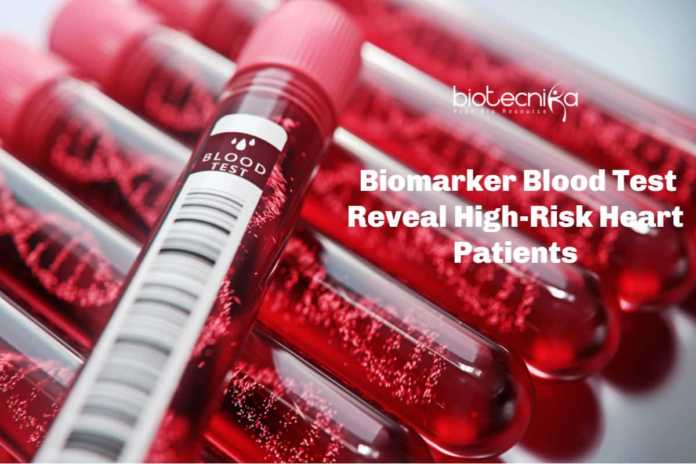Biomarker Blood-Test For Heart Patients Reveals Heart Disease Risks
Without occasionally looking under the hood, it is difficult to predict whether expensive car repairs lie ahead. In a similar way, preventive cardiologists are now looking for ways to detect early-stage heart disease in people who are not currently under treatment.
Preventive cardiology scientists at UT Southwestern Medical Center believe that new blood tests for protein biomarkers could easily identify these individuals. And their new study is now published in Circulation. The study pooled patient data from 3 major patient populations including multiple ethnicities and totaling nearly about 13,000 people. The research team asked whether measuring levels of 2 biomarkers i.e, proteins in the blood would identify people in need of treatment.
The scientists found that approximately one-third of the adults with mild hypertension who aren’t currently recommended for treatments have slight elevations of one of these 2 protein biomarkers; these individuals were more likely to have heart attacks, strokes, or even congestive heart failure over the next ten years. In other words, these heart patients are flying under the radar and do not know that they are at a greater risk of cardiovascular events.

The team thinks this type of test can help in the shared decision-making process for patients who are in need of information about their risk, said preventive cardiologist, Dr. Parag Joshi, Assistant Professor of Internal Medicine. Biomarker blood tests are easily accessible and are less expensive than some other tests for risk assessment, he added.
Led by Dr. Joshi & Dr. Ambarish Pandey, Assistant Professor of Internal Medicine, the scientists looked at data from about 12,987 participants (mean age 55 years, 55% female) who experienced 825 cardiovascular events, such as heart attacks & strokes, over a median follow-up time of ten years. This information was compiled from the Atherosclerosis Risk in Communities Study, the Dallas Heart Study,& from the Multiethnic Study of Atherosclerosis.
Further researches are needed to determine whether informing blood pressure treatment with these protein biomarkers has an effect on patient outcomes.
Dr. Pandey explained one of the proteins, high sensitivity troponin, measures injury to the heart muscle, and the other, called the NT-proBNP, measures stress on the heart muscle. The presence of these proteins is the indication of subtle long-term cardiac injury, like wear & tear over time, he added.
High blood pressure (with other risk factors) is known to increases the risk of heart attacks, strokes & congestive heart failure. Treatment to lower the blood pressure reduces this risk factor. Other parameters that play a role in cardiovascular disease include high cholesterol levels, gender, age, smoking, poor diet, lack of exercise & diabetes.
The process of developing the cardiovascular disease can be difficult to pick up on based only on these risk factors. Now there are tests to detect markers of heart disease in people without any symptoms who are actually at higher risk, said Dr. Joshi.
Additional UT Southwestern cardiology scientists who contributed to the study include Dr. Kershaw Patel, cardiology fellow; Colby Ayers, Internal Medicine Faculty Associate; Dr. Wanpen Vongpatanasin, Professor of Internal Medicine; Dr. Jarett Berry, Professor of Internal Medicine; & Dr. James de Lemos, Professor of Internal Medicine. Dr. Vongpatanasin holds the Norman & Audrey Kaplan Chair in Hypertension and the Fredric L. Coe Professorship in Nephrolithiasis Research in Mineral Metabolism. Dr. Berry is a Dedman Family Scholar in Clinical Care. Dr. de Lemos holds the Sweetheart Ball-Kern Wildenthal, M.D., Ph.D. Distinguished Chair in Cardiology.
Editor’s Note: Biomarker blood-test for heart patients, Biomarker Blood-Test For Heart Patients Reveals Heart Disease Risks, Biomarker Blood Test Reveal High-Risk Heart Patients, Biotecnika News, biomarkers.






























